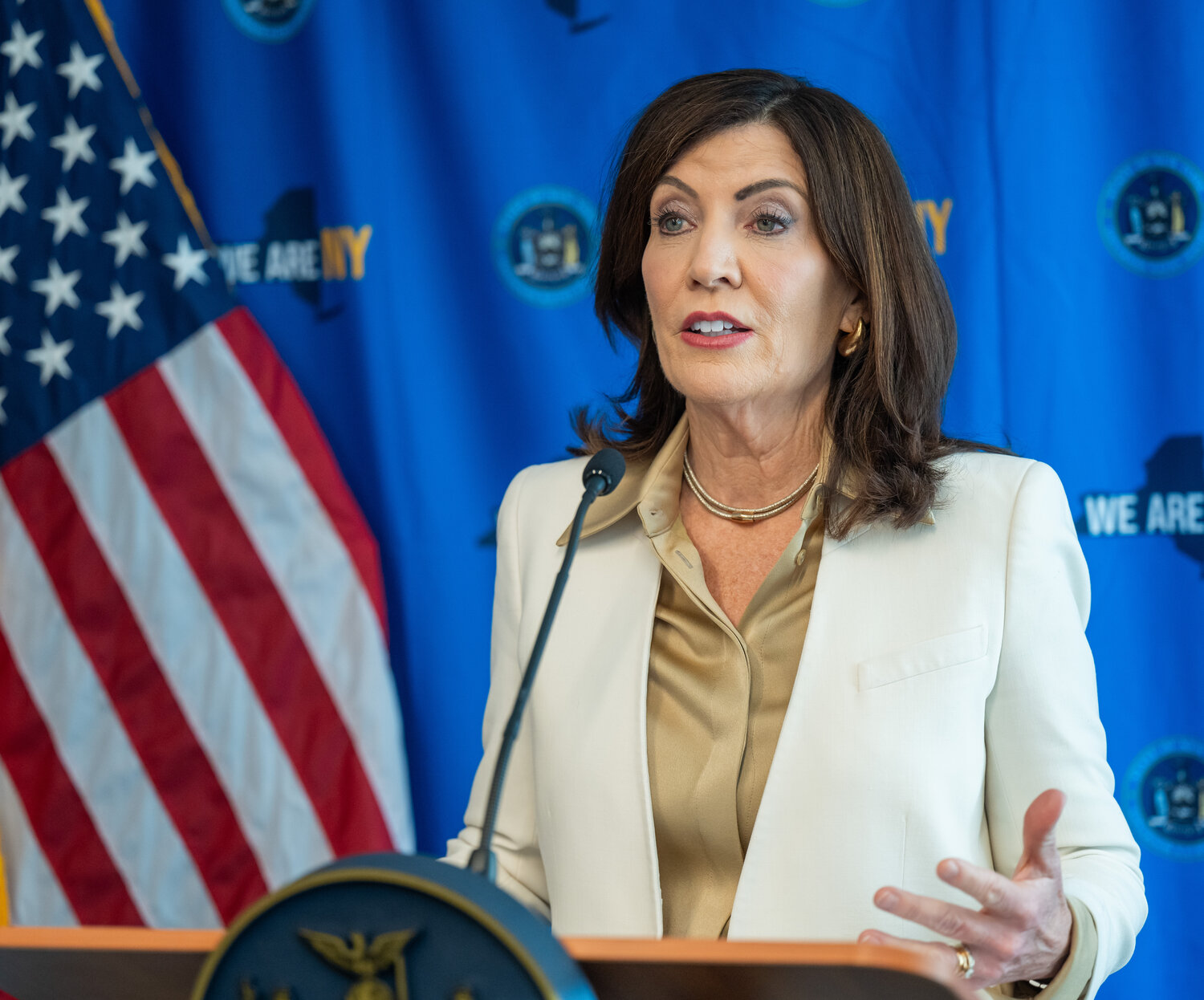State launches energy affordability guarantee pilot to assist low-income households with electrification costs
Gov. Kathy Hochul announced last week that the state’s public service commission has approved the implementation of the Energy Affordability Guarantee pilot program, aimed at helping low-income households manage electricity costs.
The pilot program, which will be available to approximately 1,000 participants, is designed for households that fully electrify their space and water heating through the EmPower+ program. Eligible participants will receive tailored bill assistance to ensure they pay no more than six percent of their annual household income on electricity.
“Affordability is a top priority, and we’re making much-needed investments to help low-income New Yorkers affordably electrify their homes,” Hochul said. “With the Energy Affordability Guarantee, we’re overcoming barriers to clean energy adoption for the most vulnerable families across the state.”
The Energy Affordability Guarantee was first proposed by Hochul in her 2023 State of the State address. Funding for the multi-year pilot program comes from a $50 million appropriation in the 2025 state budget.
To qualify, households must meet income eligibility standards, defined as an annual household income equal to or lower than 60 percent of the state median income, and must also participate in the EmPower+ program. Administered by the New York State Energy Research and Development Authority, EmPower+ provides no-cost and subsidized energy efficiency and clean energy upgrades for low- to moderate-income households.
This new initiative builds on existing policies, including a 2016 public service commission energy affordability policy that aims to limit low-income households’ energy costs to six percent of their annual income. The state’s broader portfolio of energy efficiency initiatives, directed at income-eligible households, represents nearly $170 million annually from 2020 through 2025.
Rory Christian, chair of the public service commission, expressed support for the new program.
“This effort will be a game-changer for low-income families, as we seek to balance the equally important goals of decarbonizing our housing stock, while advancing energy affordability for low-income customers,” he said.
The public service commission expects the pilot program will fill in important information gaps regarding the electrification of low-income households such as the incremental electricity consumption and cost associated with operating heat pumps across different customer and housing profiles, while mitigating energy burden increases. These insights, according the commission, will inform broader strategies to promote the decarbonization of the housing sector while prioritizing energy affordability and consumer protections for the most vulnerable New Yorkers.
Laurie Wheelock, executive director of the Public Utility Law Project, a nonprofit that advocates for low-income utility customers, said the organization has long supported the EmPower+ program.
“We’re excited to now see the Energy Affordability Guarantee work hand-in hand through this pilot to provide much-needed relief to a thousand participating low-income households struggling with high energy bills,” she said.
For more information on the program, and to learn more about eligibility standards, visit NYSERDA.ny.gov.






